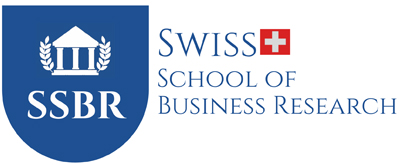The majority of universities across the world record student performance through a credit system. Credits are a measure of a student’s work and are calculated by a combination of study hours, assignments, practical elements and self-directed research. In Europe, many higher education institutions use a standardised system to indicate a student’s performance level. This system is the European Credit Transfer and Accumulation System, which is commonly referred to as ECTS. All SSBR degree programmes are awarded through an accumulation of ECTS credits.
What are the ECTS credits?
The European Credit Transfer and Accumulation System (ECTS) are designed to make study programmes more transparent and allow students to gain a degree through a variety of disciplines such as practical work experiences and study abroad opportunities alongside core research and studies.
An ECTS credit value is awarded to each element of the degree programme depending on the workload required to complete the tasks. The value corresponds to the allotted time for class attendance, self-study and exam preparation. There are also opportunities to gain additional credits through work experience opportunities and internships. Researching and writing a thesis or final project will be allocated the highest amount of credits.
Students gain their credits when they successfully complete a part of the course, by meeting objectives or demonstrating knowledge and understanding specific to each module. This can be achieved through taking exams, delivering presentations, or completing assessments, to name but a few.
An academic year is made up of 60 ECTS credits. Once a minimum number of credits has been earned, a request for graduation can be submitted.
ECTS and SSBR Programmes
SSBR Credits are issued based on the length of a programme.
Our Bachelor programmes are completed over three years, a student will be required to obtain 180 credits in order to earn the degree qualification, through completing course modules across all 3 years and conducting a thesis during the final year.
Our Master programmes are completed over 1 academic year (9-12 months in duration) where 90 credits are required to complete the degree. 6 modules are valued at 10 credits each, which are completed in the first semester. Then a final 30 credits are obtained from a final project in the second semester.
Our Doctorate programmes are made up of 240 ECTS, although can be completed within 3 years.
If you have achieved all-but-dissertation (ABD) status in another institution of higher education’s PhD in Management programme, there’s no need to start from scratch. Our programme offers a completion option that allows you to pick up where you left off. You’ll benefit from integrated dissertation support to help ensure you reach the finish line.
Practical use of ECTS
As ECTS are used widely across Europe, they provide an easy path for students to navigate their studies and gauge the workload involved in each area of a programme. This system is a universal tool for both students and higher education institutions, as it provides a straightforward comparison of course objectives.
Advantages to ECTS
The use of ECTS opens up possibilities to integrate different learning styles, including curriculum-based learning, practical work experience and research techniques.
ECTS allows a student to carry credits over from one higher education institution to another and complete a degree without having to start again.
To find out more about ECTS for any of our online programmes or transferring credits to complete your degree with SSBR, contact one of the team today who will be happy to answer any of your questions.
Email: info@ssbr-edu.ch
Insta: @swissschoolofbusinessresearh
Facebook: @swissschoolofbusinessresearh

